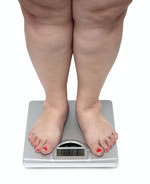Food taxes will not beat obesity: manufacturers
 Food taxes introduced by some EU member states to discourage the consumption of ‘unhealthy’ foods will not tackle obesity and risks hindering the competitiveness of EU food and drink industries, warns the manufacturers’ organisation FoodDrinkEurope.
Food taxes introduced by some EU member states to discourage the consumption of ‘unhealthy’ foods will not tackle obesity and risks hindering the competitiveness of EU food and drink industries, warns the manufacturers’ organisation FoodDrinkEurope.
FoodDrinkEurope and the European Federation of Food and Agriculture and Tourism Trade Unions (EFFAT) also said that taxes on fatty foods were sidestepping the larger challenge of encouraging consumers to adopt healthier lifestyles.
FoodDrinkEurope and EFFAT said they opposed what they described as ‘discriminatory taxes’ on foods in favour of encouraging responsible eating habits and positive behavioural change among consumers in Europe. Not just food, but also lifestyle, social conditions and nutrition education contribute to healthy habits, they claimed.
‘Not the solution’
FoodDrinkEurope director general, Mella Frewen, said: “Discriminatory taxes on foods are not the solution to help fight obesity and non-communicable diseases. A more coherent approach is needed, with each actor playing his part, to help create positive behavioural change in consumer habits.
She called on Europe’s politicians to take a holistic approach to tackling obesity and non-communicable diseases, including promoting nutrition education, supporting those with eating disorders and demanding that all throughout the food supply chain take responsibility for promoting healthier food choices.
Harald Wiedenhofer, EFFAT general secretary, said: “We must ensure that all Europeans, including low-income earners, can access both a variety of fresh and healthy foods at affordable prices, and knowledge about nutrition and healthy lifestyles.
But the UK Health Forum said the position did “not make sense”.
“The industry position doesn’t make sense, calling for a holistic approach to obesity and diet-related diseases while ruling out food taxes from a policy response,” said Jane Landon, deputy chief executive of the UK Health Forum. “Studies have consistently shown that alcohol and tobacco duties reduce consumption of these products and the World Health Organisation has identified these duties as ‘best buys’ among policy measures to tackle non-communicable diseases.”


































